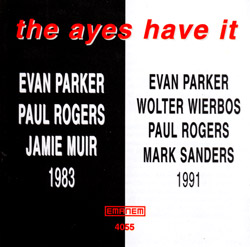
Two performances by one-off groups, both featuring Evan Parker (saxophones) and Paul Rogers (double bass) -- a 1983 trio studio recording with percussionist Jamie Muir, and a 1991 quartet gig with percussionist Mark Sanders and visiting trombonist Wolter Wierbos.
Out of Stock
Quantity in Basket: None
Log In to use our Wish List
Shipping Weight: 5.00 units
Sample The Album:
Evan Parker-soprano saxophone, tenor saxophone
Paul Rogers-doublebass
Jamie Muir-percussion, toys
Wolter Wierbos-trombone
Mark Sanders-percussion
Click an artist name above to see in-stock items for that artist.
UPC: 5030243405527
Label: Emanem
Catalog ID: 4055
Squidco Product Code: 18425
Format: CD
Condition: New
Released: 2001
Country: Great Britain
Packaging: Jewel Case
Tracks 1 - 4 Analogue studio recording London - 1983 December.
Track 5 Digital concert recording London (Angel & Crown) - 1991 August 1. Tracks 1 - 4 Analogue studio recording London - 1983 December.
Track 5 Digital concert recording London (Angel & Crown) - 1991 August 1.
"According to producer Martin Davidson, these two recordings (tracks one through four, and track five) were not released earlier because each was simply too short to fill an entire CD. Each features a group led by Evan Parker that only performed once as a unit. Parker is in his usually good form at both sessions, which were recorded more than seven years apart. Nonetheless, the two recordings are very different, due to the personalities of his colleagues.
The first four tracks (recorded in 1983) are less than ten minutes each, and, without detracting from Parker's fine efforts, the distinguishing characteristics come from Paul Rogers' energetic bass and Jamie Muir's unusual contributions on percussion and toys -- the latter of which, although used highly selectively, adds a fascinating dimension.
The 36-minute track (recorded in 1991) with the superb Dutch trombonist Wolter Wierbos offers an extremely rare opportunity to hear him with Parker in a small group. The results do not disappoint in the least -- although apparently due to the extreme heat and humidity, the trombonist stopped playing midway through the nearly 40-minute performance because of problems with his contact lens. Until then, Wierbos is in top form, the similarities to the playing of trombonist George Lewis evident in part, but with this artist displaying a more primitive-sounding approach.
While the two sessions have ostensibly little in common (other than the common appearances of Parker and Rogers, and both having been recorded in London, England), each easily stands on its own as an excellent example of the free improvisational spirit of the period."-Steve Loewy, allmusic.com
Artist Biographies
• Show Bio for Evan Parker "Evan Parker was born in Bristol in 1944 and began to play the saxophone at the age of 14. Initially he played alto and was an admirer of Paul Desmond; by 1960 he had switched to tenor and soprano, following the example of John Coltrane, a major influence who, he would later say, determined "my choice of everything". In 1962 he went to Birmingham University to study botany but a trip to New York, where he heard the Cecil Taylor trio (with Jimmy Lyons and Sunny Murray), prompted a change of mind. What he heard was "music of a strength and intensity to mark me for life ... l came back with my academic ambitions in tatters and a desperate dream of a life playing that kind of music - 'free jazz' they called it then." Parker stayed in Birmingham for a time, often playing with pianist Howard Riley. In 1966 he moved to London, became a frequent visitor to the Little Theatre Club, centre of the city's emerging free jazz scene, and was soon invited by drummer John Stevens to join the innovative Spontaneous Music Ensemble which was experimenting with new kinds of group improvisation. Parker's first issued recording was SME's 1968 Karyobin, with a line-up of Parker, Stevens, Derek Bailey, Dave Holland and Kenny Wheeler. Parker remained in SME through various fluctuating line-ups - at one point it comprised a duo of Stevens and himself - but the late 1960s also saw him involved in a number of other fruitful associations. He began a long-standing partnership with guitarist Bailey, with whom he formed the Music Improvisation Company and, in 1970, co-founded Incus Records. (Tony Oxley, in whose sextet Parker was then playing, was a third co-founder; Parker left Incus in the mid-1980s.) Another important connection was with the bassist Peter Kowald who introduced Parker to the German free jazz scene. This led to him playing on Peter Brötzmann's 1968 Machine Gun, Manfred Schoof's 1969 European Echoes and, in 1970, joining pianist Alex von Schlippenbach and percussionist Paul Lovens in the former's trio, of which he is still a member: their recordings include Pakistani Pomade, Three Nails Left, Detto Fra Di Noi, Elf Bagatellen and Physics. Parker pursued other European links, too, playing in the Pierre Favre Quartet (with Kowald and Swiss pianist Irene Schweizer) and in the Dutch Instant Composers Pool of Misha Mengelberg and Han Bennink. The different approaches to free jazz he encountered proved both a challenging and a rewarding experience. He later recalled that the German musicians favoured a "robust, energy-based thing, not to do with delicacy or detailed listening but to do with a kind of spirit-raising, a shamanistic intensity. And l had to find a way of surviving in the heat of that atmosphere ... But after a while those contexts became more interchangeable and more people were involved in the interactions, so all kinds of hybrid musics came out, all kinds of combinations of styles." A vital catalyst for these interactions were the large ensembles in which Parker participated in the 1970s: Schlippenbach's Globe Unity Orchestra, Chris McGregor's Brotherhood of Breath, Barry Guy's London Jazz Composers Orchestra (LJCO) and occasional big bands led by Kenny Wheeler. In the late 70s Parker also worked for a time in Wheeler's small group, recording Around Six and, in 1980, he formed his own trio with Guy and LJCO percussionist Paul Lytton (with whom he had already been working in a duo for nearly a decade). This group, together with the Schlippenbach trio, remains one of Parker's top musical priorities: their recordings include Tracks, Atlanta, Imaginary Values, Breaths and Heartbeats, The Redwood Sessions and At the Vortex. In 1980, Parker directed an Improvisers Symposium in Pisa and, in 1981, he organised a special project at London's Actual Festival. By the end of the 1980s he had played in most European countries and had made various tours to the USA, Canada, Australia, New Zealand and Japan. ln 1990, following the death of Chris McGregor, he was instrumental in organising various tributes to the pianist and his fellow Blue Notes; these included two discs by the Dedication Orchestra, Spirits Rejoice and lxesa. Though he has worked extensively in both large and small ensembles, Parker is perhaps best known for his solo soprano saxophone music, a singular body of work that in recent years has centred around his continuing exploration of techniques such as circular breathing, split tonguing, overblowing, multiphonics and cross-pattern fingering. These are technical devices, yet Parker's use of them is, he says, less analytical than intuitive; he has likened performing his solo work to entering a kind of trance-state. The resulting music is certainly hypnotic, an uninterrupted flow of snaky, densely-textured sound that Parker has described as "the illusion of polyphony". Many listeners have indeed found it hard to credit that one man can create such intricate, complex music in real time. Parker's first solo recordings, made in 1974, were reissued on the Saxophone Solos CD in 1995; more recent examples are Conic Sections and Process and Reality, on the latter of which he does, for the first time, experiment with multi-tracking. Heard alone on stage, few would disagree with writer Steve Lake that "There is, still, nothing else in music - jazz or otherwise - that remotely resembles an Evan Parker solo concert." While free improvisation has been Parker's main area of activity over the last three decades, he has also found time for other musical pursuits: he has played in 'popular' contexts with Annette Peacock, Scott Walker and the Charlie Watts big band; he has performed notated pieces by Gavin Bryars, Michael Nyman and Frederic Rzewski; he has written knowledgeably about various ethnic musics in Resonance magazine. A relatively new field of interest for Parker is improvising with live electronics, a dialogue he first documented on the 1990 Hall of Mirrors CD with Walter Prati. Later experiments with electronics in the context of larger ensembles have included the Synergetics - Phonomanie III project at Ullrichsberg in 1993 and concerts by the new EP2 (Evan Parker Electronic Project) in Berlin, Nancy and at the 1995 Stockholm Electronic Music Festival where Parker's regular trio improvised with real-time electronics processed by Prati, Marco Vecchi and Phillip Wachsmann. "Each of the acoustic instrumentalists has an electronic 'shadow' who tracks him and feeds a modified version of his output back to the real-time flow of the music." The late 80s and 90s brought Parker the chance to play with some of his early heroes. He worked with Cecil Taylor in small and large groups, played with Coltrane percussionist Rashied Ali, recorded with Paul Bley: he also played a solo set as support to Ornette Coleman when Skies of America received its UK premiere in 1988. The same period found Parker renewing his acquaintance with American colleagues such as Anthony Braxton, Steve Lacy and George Lewis, with all of whom he had played in the 1970s (often in the context of London's Company festivals). His 1993 duo concert with Braxton moved John Fordham in The Guardian to raptures over "saxophone improvisation of an intensity, virtuosity, drama and balance to tax the memory for comparison". Parker's 50th birthday in 1994 brought celebratory concerts in several cities, including London, New York and Chicago. The London performance, featuring the Parker and Schlippenbach trios, was issued on a highly-acclaimed two-CD set, while participants at the American concerts included various old friends as well as more recent collaborators in Borah Bergman and Joe Lovano. The NYC radio station WKCR marked the occasion by playing five days of Parker recordings. 1994 also saw the publication of the Evan Parker Discography, compiled by ltalian writer Francesco Martinelli, plus chapters on Parker in books on contemporary musics by John Corbett and Graham Lock. Parker's future plans involve exploring further possibilities in electronics and the development of his solo music. They also depend to a large degree on continuity of the trios, of the large ensembles, of his more occasional yet still long-standing associations with that pool of musicians to whose work he remains attracted. This attraction, he explained to Coda's Laurence Svirchev, is attributable to "the personal quality of an individual voice". The players to whom he is drawn "have a language which is coherent, that is, you know who the participants are. At the same time, their language is flexible enough that they can make sense of playing with each other ... l like people who can do that, who have an intensity of purpose." " ^ Hide Bio for Evan Parker • Show Bio for Paul Rogers "Paul Rogers - Double Bass Born : April 27th, 1956 - Chester (Wales)Past Bands : Keith Tippett Sextet (1978, 1983-84), Elton Dean Quintet (1979, 1995), John Stevens Away (1980), Skidmore/Rogers/Levin (1984-87), Dunmall/Rogers/Levin (1984-87), Mujician (1988-), Pip Pyle's Equip'Out (1990-95), Sophia Domancich Trio (1990-99)Current Projects : Mujician + various jazz groups A Short Bio: For Paul Rogers, music began in earnest at age 12, when he first picked up an acoustic guitar. In a way this was the shape of things to come, since that particular guitar only had four strings left. Two years later, he took up bass guitar, and then, with the money earned from various jobs, finally acquired his own double bass in 1973. Moving to London in 1974, Rogers started gigging in pubs, until he met saxophone player Mike Osborne, and through him was introduced to the free jazz scene, soon sharing the stage with such luminaries as Elton Dean, Keith Tippett, John Stevens, Howard Riley, Stan Tracey, Ken Hyder, Alan Skidmore, Evan Parker, Tony Marsh, Kenny Wheeler and John Etheridge. During this period, he was rarely in the same group for too long, preferring to accumulate experience through associations with as many musicians as possible. After 1984, however, he started working on a regular basis with drummer Tony Levin, in trios with either Alan Skidmore or Paul Dunmall. In 1988, the Dunmall/Rogers/Levin trio with absorbed into the acclaimed improvising quartet Mujician, which associated them with pianist Keith Tippett. The group has existed ever since, playing totally spontaneous music, and released several albums for the US label Cuneiform. In 1987, Rogers moved to the USA, living in New York City (and more precisely Bronx) for a year and a half, and playing with the likes of Gerry Hemingway, Don Byron, Myra Melford, Mark Dresser, Tom Cora and Tim Berne. Soon after returning to Europe, he was recruited by Pip Pyle for the new line-up of his jazz quartet Equip'Out. Elton Dean and Sophia Domancich completed the group, which only lasted for a handful of gigs and an album recording, "Up!". Although Equip'Out didn't record after Domancich left in 1991, the band continued until 1995, with Francis Lockwood taking over on piano, followed by Patrice Meyer who introduced guitar into a previously piano-based line-up. Having established both a musical and personal relationship with Sophia Domancich during their Equip'Out days, Rogers joined her trio, with Bruno Tocanne on drums, soon replaced by Tony Levin, a line-up which remained in place until 1999 and recorded several acclaimed albums. Now settled in France, Rogers has also worked with such improvisers as Michel Doneda and Daunik Lazro, but remains active on an international basis, having worked in recent years with Andrew Cyrille, John Zorn, Derek Bailey, Lol Coxhill, Barry Guy, Joachim Kuhn, Alex von Schlippenbach. Rogers is also a composer, and has been involved with different bands playing his tunes, among which the most notable was 7 R.P.M. and the Paul Rogers Sextet (which did a 10-date UK tour in November 1990 performing his 'Anglo-American Sketches' suite). He received three commisions from the Arts Council of Great Britain to compose music for his own band. Under his own name, he released a quartet album with frequent associates Paul Dunmall, Sophia Domancich and Tony Levin, as well as an entirely solo set. Among Rogers' tours, four of the most outstanding were the Harry Beckett Trio middle east tour in 1984, Evan Parker Trio tour of Rumania, Yugaslavia and Greece in 1985, First House tour of South America in 1986, and the Dennis Gonzales Band tour of the USA, featuring Carlos Ward and Tim Green in 1990." ^ Hide Bio for Paul Rogers • Show Bio for Jamie Muir "Jamie Muir (born in Edinburgh, Scotland) is a Scottish painter and former percussionist, best known for his work in King Crimson. Muir attended the Edinburgh College of Art during the 1960s, and began playing jazz on trombone before settling on percussion. After moving to London, Muir worked with choreographer Lindsay Kemp, and was active in free improvisation, recording, and performing with Derek Bailey and Evan Parker in The Music Improvisation Company from 1968-1971. Muir used various found objects as part of his percussion repertoire. He spoke of "approach[ing] the rubbish with a total respect for its nature as rubbish", and that "The way to discover the undiscovered in performing terms is to immediately reject all situations as you identify them (the cloud of unknowing) - which is to give music a future". During this period he also played in the band Boris with Don Weller and Jimmy Roche (both later of jazz-rock band Major Surgery) and put in a stint with Afro-rock band Assagai in which he met keyboard player Alan Gowen. Muir and Gowen subsequently formed the experimental jazz-rock band Sunship with guitarist Allan Holdsworth and bass player Laurie Baker, although Muir has admitted that "we spent more time laughing than playing music" and suggests that the band played no gigs and got no further than rehearsals. Muir was a member of King Crimson from mid-1972 to early 1973. With King Crimson, Muir occasionally played a standard drum kit, but more often he contributed an assortment of unusual sounds from a wide variety of percussion instruments, including chimes, bells, thumb piano, mbiras, a musical saw, shakers, rattles, found objects, and miscellaneous drums. Muir initially appeared on a single King Crimson album, 1973's Larks' Tongues In Aspic. Several live recordings featuring Muir have been released later by DGM records; the 15-CD box set released in 2012 for the 40th anniversary of the album includes every recording from that line-up, be it live or studio, documenting everything Muir has ever contributed. King Crimson violinist/keyboardist David Cross reports that "We all learned an incredible amount from Jamie. He really was a catalyst of this band in the beginning and he opened up new areas for Bill [Bill Bruford, the group's "conventional" drummer] to look into as well as affecting the rest of us." In 1972 Muir decided to pursue a monastic lifestyle, in accordance with the strict principles of Buddhism. He left King Crimson abruptly in early 1973 and moved to Samye Ling Monastery near Eskdalemuir in southern Scotland. He had just completed his contribution to Larks' Tongues, released subsequent to his departure. The British Press at the time attributed his decision as the result of "personal injury sustained onstage during performance", a phrase attributed to the band's management company, E'G. Jamie Muir also showed Yes's Jon Anderson about Paramahansa Yogananda's works during the wedding reception of the previous Yes drummer Bill Bruford, which ultimately led up to influencing the album Tales From Topographic Oceans by Yes, based on the Yogananda's Autobiography of a Yogi. In 1980, Muir returned to the London music scene, recording with Evan Parker and Derek Bailey. He was also on the soundtrack of the film Ghost Dance, a collaboration with another Crimson alumnus, drummer Michael Giles and David Cunningham recorded in 1983, and eventually released in 1996. Muir has since withdrawn completely from the music business and now devotes his energies to painting." ^ Hide Bio for Jamie Muir • Show Bio for Wolter Wierbos "Wolter Wierbos (born 1 September 1957 in Holten, Overijssel) is a Dutch jazz trombonist. Wierbos has played throughout Europe, Canada, USA and Asia. Wierbos has many awards to his name, including the Podiumprijs for Jazz and Improvised music and the most important Dutch jazz award, the VPRO/Boy Edgar Award in 1995. Since 1979 he has played with numerous music ensembles: Cumulus (with Ab Baars and Harry de Wit), JC Tans & Rockets, Theo Loevendie Quintet, Guus Janssen Septet, Loos (Peter van Bergen), Maarten Altena Ensemble and Podiumtrio. He led his own band, Celebration of Difference, and has been involved in theater, dance, television and film projects. He has been invited to play with The Ex, Sonic Youth, Gruppo Sportivo and the Nieuw Ensemble (led by Ed Spanjaard). He has also played with Henry Threadgill, The Berlin Contemporary Jazz Orchestra (led by Alexander von Schlippenbach), the European Big Band (led by Cecil Taylor), the John Carter Project, Mingus Big Band (Epitaph, directed by Gunther Schuller). He is currently active with Misha Mengelberg's Instant Composers Pool (Down Beat Poll winner 2002, Talent Deserving Wider Recognition), Gerry Hemingway Quintet, Franky Douglas' Sunchild, Bik Bent Braam, Albrecht Maurer Trio Works, Nocando, Carl Ludwig Hübsch's Longrun Development of the Universe, Frank Gratkowski Quartet, Available Jelly and Sean Bergin's MOB. Wierbos also maintains a solo career. He has a running project under the name Wollo's World, where he brings together different artistic combinations, ranging from duos with tap-dancer Marije Nie and bassist Wilbert de Joode to a quartet with Misha Mengelberg, Mats Gustafsson and Wilbert de Joode. Wolter Wierbos can be heard on more than 100 CDs and LPs. He has released two solo CDs: X Caliber (ICP 032, 1995), "a round-trip tour of his horn, from buzzing mute mutations, grizzly blurts and purring multiphonics to radiant melodies", and Wierbos (DATA 824), a reissue of his 1982 solo LP with an additional track." ^ Hide Bio for Wolter Wierbos • Show Bio for Mark Sanders "Mark Sanders has played with many renowned musicians including Roscoe Mitchell, Wadada Leo Smith, Derek Bailey, Henry Grimes, Roswell Rudd, Peter Brotzmann, Barry Guy, Otomo Yoshihide, Jah Wobble, Sidsel Endresen , Charles Gayle, Peter Evans and William Parker. He works with John Edwards in a duo and with groups including Evan Parker, `Foils` with Frank Paul Schubert and Matthius Muller and groups with Veryan Weston, John Tilbury, Agusti Fernandez and Mathew Shipp. Mark works in a regular improvising duo with John Butcher and also performing John`s composition `Tarab Cuts` which has played festivals in Rio de Janiero, Amsterdam, Barcelona, Glasgow, Bristol and London. In a trio with cellist Okkyung Lee, John and Mark have played in Belgium, France, England and Scotland. He also has a longstanding duo with Sarah Gail Brand which has featured on the BBC`s `The Stuart Lee Show`and in the film `Taking the dog for a Walk`. He has performed solo for a Christian Marclay exhibition at The White Cube Gallery in London, Evan Parker`s festival`Unwhitstable` in Wroclaw, Poland for `Solos Festival` The 100 Years Gallery London, an improvised music series in Derby and Cafe Oto in London. Working with Christian Marclay in his `Everyday` piece for film and live music, he has performed in Aldeburgh, Ruhr Trienalle, Vienna Bienalle, Holland festival and London`s QEH and has also collaborated with him playing for the film `Screenplay`in London and Lisbon. In situations using composition in one form or another Mark works in various projects including `13 Vices` with Brian Irvine/Jennifer Walshe, Alex Hawkins Ensemble featuring Peter Evans, Simon Fell Ensembe, groups with Hasse Poulsen and Luc Ex , Sarah Sarhandi`s `Both Universe`, Elaine Mitchener`s `Sweet Tooth` and has played in the groups of Shabaka Hutchings including`Sons of Kemet` Conceptual Artist Sam Belinfante collaborated with Mark in his piece `On the One Hand, and the Other` in two exhibitions at Camden Arts Centre, London For Conceptual artist Henrik Hakensen`s film `The End` he has performed as an improvising soloist with orchestras conductedd by Jessica Cottis, playing the music of John Coxon in Glasgow, Sydney and Monte Carlo As a guest with New York`s ICE Ensemble he has performed John Zorn`s `The Tempest` in London and at Huddersfield New Music Festival. Mark also works in the groups of Paul Dunmall including Deep Whole Trio with Paul Rogers, in duo and `Frisque Concordance` with Georg Graewe , and the ensembles of Mikolaj Trzaska, Uwe Oberg and Peter Jaquemyn. He has performed in the USA, Canada, Brazil, Japan, Morrocco, South Africa, Australia, Mozambique and Turkey, playing at many major festivals including Nickelsdorf, Riga, Ulrichsburg, Glastonbury, Womad, Vancouver, Isle of Wight, Roskilde, Berlin Jazz days, FMP, Mulhouse, Luz, Minniapolis, Banlieue Bleues, Son D`hiver and Hurta Cordel." ^ Hide Bio for Mark Sanders
11/18/2024
Have a better biography or biography source? Please Contact Us so that we can update this biography.
11/18/2024
Have a better biography or biography source? Please Contact Us so that we can update this biography.
11/18/2024
Have a better biography or biography source? Please Contact Us so that we can update this biography.
11/18/2024
Have a better biography or biography source? Please Contact Us so that we can update this biography.
11/18/2024
Have a better biography or biography source? Please Contact Us so that we can update this biography.
Track Listing:
1. Aye 1 9:19
2. Aye 2 4:06
3. Aye 3 8:57
4. Aye 4 9:44
5. The Ayes Have It 36:32
Improvised Music
Free Improvisation
London & UK Improv & Related Scenes
Quintet Recordings
Parker, Evan
EMANEM & psi
Search for other titles on the label:
Emanem.


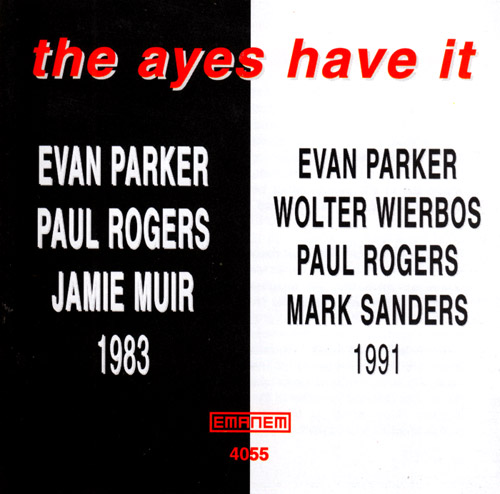
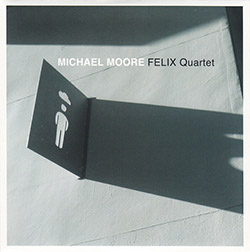
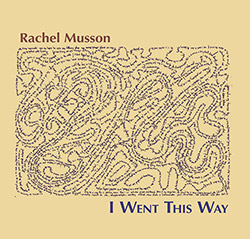
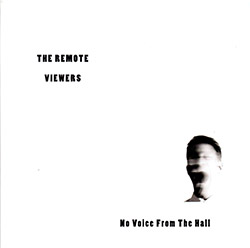



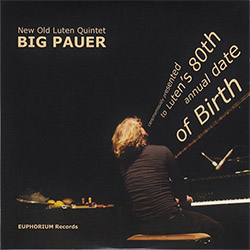
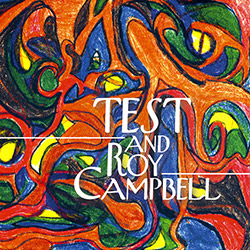
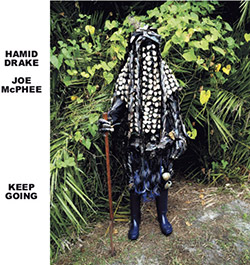
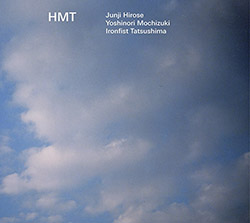

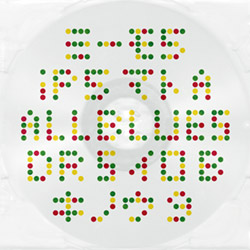

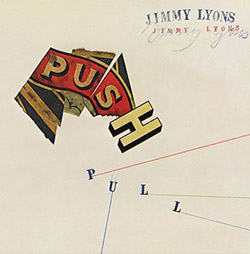
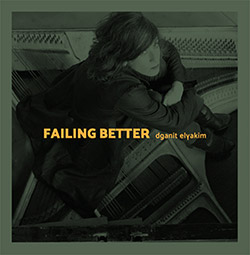
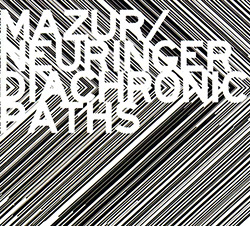
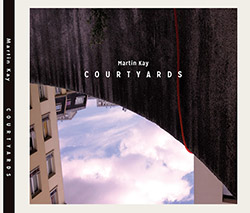
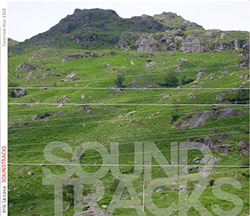
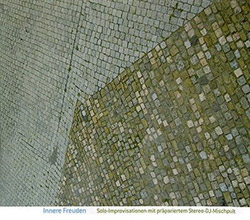

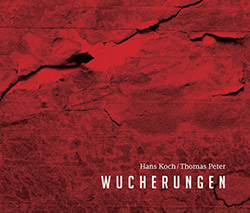
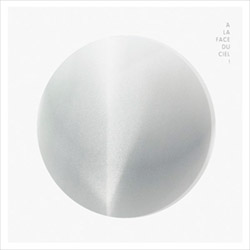
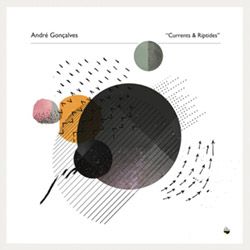

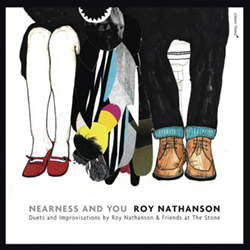















![Barker / Parker / Irabagon: Bakunawa [VINYL]](https://www.teuthida.com/productImages/misc4/35533.jpg)
![Blaser, Samuel / Marc Ducret / Peter Bruun: Dark Was The Night, Cold Was The Ground [VINYL 10-inch]](https://www.teuthida.com/productImages/misc4/35492.jpg)










![Warren, Kenny (Warren / Hoffman / Ellman): Sweet World [VINYL]](https://www.teuthida.com/productImages/misc4/35451.jpg)


![Blake, Ran / Dave Knife Fabris: Live Amsterdam 2006, First Visit [CD + POSTCARDS]](https://www.teuthida.com/productImages/misc4/35275.jpg)
![Sanna, Claudio: Compositori Sardi Contemporanei II [2 CDs]](https://www.teuthida.com/productImages/misc4/35317.jpg)












![Nevai, Nandor: <<The PRICE of FRONTIER>> Book 1: FULK [BOOK + 4 CDs]](https://www.teuthida.com/productImages/misc4/35464.jpg)
![Nevai, Nandor: <<The PRICE of FRONTIER>> Book 2: MARTIAL [BOOK + 4 CDs]](https://www.teuthida.com/productImages/misc4/35465.jpg)
![Nevai, Nandor: <<The PRICE of FRONTIER>> Book 3: JASSOM [BOOK + 4 CDs]](https://www.teuthida.com/productImages/misc4/35466.jpg)
![Nevai, Nandor: <<The PRICE of FRONTIER>> Book 4: HARD-WON [BOOK + 4 CDs]](https://www.teuthida.com/productImages/misc4/35467.jpg)






![DNS: Taking Big Bites Of The Khandas Three Cafes Deep [2 CDs]](https://www.teuthida.com/productImages/misc4/35334.jpg)




![Cleaver, Gerald: The Process [VINYL]](https://www.teuthida.com/productImages/misc4/34966.jpg)




![Alva Noto: HYbr:ID II [VINYL 2 LPs]](https://www.teuthida.com/productImages/misc4/35201.jpg)

![Baron, Derek / Luke Martin: Distinct and Concealed [CASSETTE + DOWNLOAD]](https://www.teuthida.com/productImages/misc4/35079.jpg)

![Lyle, Erica Dawn : Colonial Motels [CASSETTE + DOWNLOAD]](https://www.teuthida.com/productImages/misc4/35080.jpg)







![Alva Noto: HYbr:ID III [VINYL 2 LPs]](https://www.teuthida.com/productImages/misc4/35011.jpg)
![Kubisch, Christina / Trondheim Voices: Stromsanger 2022 For Six Voices And Electromagnetic Waves [VINYL]](https://www.teuthida.com/productImages/misc4/34628.jpg)








![Zurria, Manuel: Fame di Vento [3 CDs]](https://www.teuthida.com/productImages/misc4/35167.jpg)

![Granberg, Magnus / Nattens Inbrott / Skogen: Holde Traume, Kehret Wieder! [2 CDs]](https://www.teuthida.com/productImages/misc4/35038.jpg)
![Frey, Jurg: Outermost Melodie [2 CDs]](https://www.teuthida.com/productImages/misc4/35039.jpg)

![Pavone, Jessica: Reverse Bloom [VINYL]](https://www.teuthida.com/productImages/misc4/34895.jpg)




![Modney (Modney / Wooley / Gentile / Roberts / Pluta / Symthe / ...): Ascending Primes [2 CDs]](https://www.teuthida.com/productImages/misc4/34852.jpg)








![Elephant9 with Terje Rypdal: Catching Fire [VINYL 2 LPs]](https://www.teuthida.com/productImages/misc4/35355.jpg)
![Deerlady (Obomsawin, Mali / Magdalena Abrego): Greatest Hits [VINYL]](https://www.teuthida.com/productImages/misc4/34876.jpg)




![Haino, Keiji: Black Blues [2 CDs]](https://www.teuthida.com/productImages/misc4/35109.jpg)



![Surplus 1980: Illusion of Consistency [CD]](https://www.teuthida.com/productImages/misc4/35069.jpg)
![Staiano, Moe: Away Towards the Light [VINYL + DOWNLOAD]](https://www.teuthida.com/productImages/misc4/35037.jpg)




![Caveira (Gomes / Sousa / Abras / Ferrandini): Ficar Vivo [VINYL]](https://www.teuthida.com/productImages/misc4/34643.jpg)
![Gregg, J. J. / David Van Auken: Lunar Prairie [CD w/ DOWNLOAD]](https://www.teuthida.com/productImages/misc4/34611.jpg)

![Coultrain: Mundus [VINYL]](https://www.teuthida.com/productImages/misc4/32439.jpg)
![Mattin: Songbook #6 [VINYL]](https://www.teuthida.com/productImages/misc4/27317.jpg)
![Punkappella: Wake Up [7-inch VINYL]](https://www.teuthida.com/productImages/misc4/17519.jpg)
![Residents, The: WARNING: UNiNC.: Live And Experimental Recordings 1971-1972 [VINYL 2 LPs]](https://www.teuthida.com/productImages/misc4/31521.jpg)
![Coultrain: Phantasmagoria [VINYL]](https://www.teuthida.com/productImages/misc4/30142.jpg)
![Lennon, Sean Ono: Asterisms [VINYL]](https://www.teuthida.com/productImages/misc4/34517.jpg)

![Rotem Geffen: The Night Is The Night [VINYL]](https://www.teuthida.com/productImages/misc4/34631.jpg)
![Coley, Byron: Dating Tips for Touring Bands [VINYL]](https://www.teuthida.com/productImages/misc4/17906.jpg)

![Lost Kisses: My Life is Sad & Funny [DVD]](https://www.teuthida.com/productImages/misc4/lostKissesDVD.jpg)